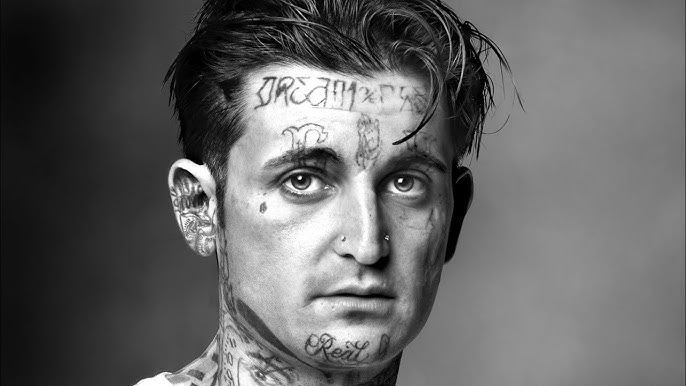Gambling sponsorships have long been a lifeline for many English football clubs. From pitch-side banners to shirt-front deals, the logos of betting companies have become almost as iconic as the clubs themselves. But this era may be ending.
As the UK government pushes ahead with new legislation to tighten gambling regulations, English football clubs are facing a major shift in how they fund their operations. For years, gambling companies have been some of the biggest sponsors across the Premier League and lower divisions, pumping millions into clubs’ marketing budgets. However, a growing movement against gambling’s influence in sport is reshaping the sponsorship landscape.
Leading casinos and sportsbooks must find other avenues to appeal to punters. However, a top operator like 888 Casino will certainly do well, especially if bettors read up on the provider, and find well-written reviews like this one by FreeSpinsTracker.com.
The question now is how clubs, especially those outside the financial powerhouses of the Premier League, will adapt. Finding alternative sponsorships from industries such as tech, finance, or health and wellness could be vital. Without new streams of revenue, many clubs risk falling behind both competitively and commercially.
The End of an Era: Shirt Sponsorship Ban Approaches
In April 2023, Premier League clubs agreed to voluntarily remove gambling sponsors from the front of their shirts, effective at the end of the 2025–26 season. The decision followed growing criticism about the exposure of gambling to young fans.
While this change only applies to shirt fronts, it signals a broader shift in how gambling brands interact with the sport. Clubs will now need to innovate with sleeve deals, LED boards, and alternative digital channels to retain sponsorship income.
Gambling Sponsorships Won’t Disappear—They’ll Reposition Themselves
Even as shirt deals fade, gambling operators are not likely to leave the football space entirely. Instead, the focus is shifting. Sleeve sponsorships, pitch-side LEDs, and global player activations still offer lucrative brand opportunities. According to Alan Alger, an industry sponsorship and PR specialist, gambling operators with international reach may pivot to using player appearances in markets with loose restrictions.
White Labels in the Spotlight
The UK’s white label model, which allows non-UK operators to legally advertise via partnerships with UK-licensed companies, is under scrutiny. Notably, the government and Gambling Commission are investigating the model after incidents involving firms like BC Game and Stake.
BC Game, once a sponsor of Leicester City, lost its UK white label licence amid accusations of insolvency. Stake, still featured on Everton’s shirts, was also stripped of its licence due to alleged social media breaches. Despite the ongoing investigations, experts believe that unless UK legislation changes significantly, the white label model will persist for the time being.
Regional Partnerships Could Replace Global Deals
One emerging trend is the move toward region-specific sponsorships. Rather than partnering with clubs on a global scale, operators may focus on regional deals. For instance, becoming an exclusive African or Asian betting partner. This provides better targeting and could lead to unique brand exposure strategies, although the legal logistics of regional content distribution remain complex due to global broadcasting feeds.
Tournaments and Leagues: A New Avenue for Exposure
As individual club partnerships come under pressure, some gambling operators are turning to leagues and tournaments instead. Bet365, for instance, signed an exclusive deal with the UEFA Champions League that gives the brand stadium visibility from 2024 to 2027.
According to Alger, partnering with tournaments allows gambling operators to spread their brand across multiple teams. However, legal experts caution that such deals bring higher regulatory and reputational risks, especially when league-wide due diligence is required.
Will Regulation End the Relationship?
Efforts to introduce a full ban on gambling sponsorships have so far stalled. A proposed clause in the Football Governance Bill, which aimed to outlaw all gambling-related football sponsorships, was defeated by a large majority in the House of Lords (339 to 74).
Critics of the clause argued that such a ban would cripple smaller clubs that rely heavily on gambling income. Baroness Fox of Buckley defended the industry, suggesting that cutting off legitimate revenue streams would be politically charged and unfair to lower-tier teams.
The bill, which also introduces an independent football regulator, is now in the House of Commons. The regulator is expected to oversee club licensing and revenue distribution but, for now, has no mandate to eliminate gambling sponsorships altogether.
It’s About Evolution, Not Elimination
While English football is entering a new era, the bond between gambling and the sport remains strong. Sponsorship strategies will evolve front-of-shirt deals may have ended, but brands will still find ways to maintain their presence. From LED boards and sleeve logos to regional partnerships and league-wide deals, gambling companies are certainly not retreating – they’re simply repositioning in ways that allow them to still be part of a lucrative space.





















